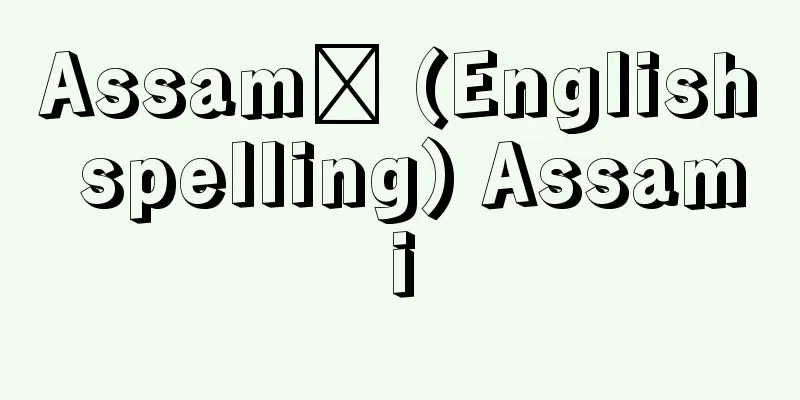Emptiness (Buddhism) - Kuu

|
...Because this perishes, that perishes." In other words, because all phenomena exist on the basis of mutual relations between phenomena, this view of dependent origination theoretically supports the Buddhist idea of "no self" or "emptiness," which states that there is nothing that can be called an unchanging or fixed entity. Shakyamuni Buddha argued for no self in opposition to the Brahmanic theory of self existence at the time, and as the basis for this he advocated the theory of "twelve dependent causes." From [Sky View]…A Buddhist view that sees all things as empty. In Sanskrit, emptiness is called śūnya (adjective), and generally, when something does not have something else, the former is said to be empty of the latter. … From the Diamond Sutra...The content of the sutra is in the form of a dialogue between the Buddha and Subhuti at the Jetavana Monastery, and concisely explains the foundations of Prajna thought. Although the term "emptiness" is not used in this sutra, its philosophy can be said to be that of "emptiness," and it denies the fixation and attachment of various religious values that have been pursued since primitive Buddhism, and through negation, seeks to realize religious values on a higher level. This sutra was highly valued by the Yogacara sect in India and by the Zen sect in China. From Mahayana Buddhism...It is noteworthy that it strongly emphasizes the worship of scriptures, which was not seen in the old Buddhist scriptures, saying that "if one accepts, recites, explains, and even copies the four-line poem of this sutra, one will receive great merit." The basic idea of Mahayana Buddhism is said to be based on "emptiness" backed by "compassion" - in theory, everything is "non-selfish" with no inherent substance of its own, and therefore in practice, one should be "detached" and act with a mind that is not bound by anything. They also aimed to take absolute refuge in the Buddha, recognize within themselves the possibility of becoming a Buddha (Buddha nature), and embody this. ... From "Nihilism"...In other words, it refers to a religious ideology that does not recognize the authority of the Vedic scriptures. The other is the Buddhist idea of emptiness. This asserts that things understood through so-called conceptual thought (words) are not the real truth as they are, but it has been misinterpreted by Hindus and others as nihilism that does not recognize the existence of anything at all. From [Banana]...In the murals of Ajanta, banana trees are seen planted among fruit trees, medicinal plants, and ornamental plants in the palace gardens. In Buddhist scriptures, the leaf sheaths of bananas overlap to form a stem, and the stem disappears when the leaves are peeled off. Based on this property, the common phrase "like Basho" is used as a metaphor to explain that what seems to exist is actually "empty" with no substance. On the other hand, an article in the "Records of the Great Tang Dynasty" records that one of the luxurious dishes served on the tables of nobles was a dessert made by boiling bananas in milk with sugar along with cheese. ... From [Nothing]...It is a study of the totality of beings (or, in modern terms, objects in general), and has been dominated by the idea that "there are beings and there is no nothing" or "nothing comes from nothing, ex nihilo fit nihil." Therefore, although there was a strong fear of nothing as an abyss or emptiness (vacuum), until the emergence of nihilism in modern times, nothingness was generally only considered as a problem in relation to beings in general, and was not treated as a subject in itself. The classification of nothingness that Kant presents in the end of the Analytic Treatise in "Critique of Pure Reason" based on a category table is also in relation to the concept of objects in general. From the theory of no-self...It was rejected based on the logic that "there is no self because it is suffering" or based on the position of dependent origination that "all existence is caused by causes and conditions, so there is no self." In Mahayana, no self was expressed by the word emptiness (śunya). Also, the non-self of man (the non-substance of living beings) and the non-self of dharma (the non-substance of material beings) were preached, and while Hinayana only asserted the non-self of man, Mahayana asserted the non-self of both man and dharma. From [Ryuju]…He was a Brahmin from South India, and learned all kinds of things at a young age. He entered the harem by hiding himself, and enjoyed all the pleasures, but he realized that desire is the cause of suffering, and became a monk, according to the Biography of Bodhisattva Nagarjuna. He established a philosophical basis for the idea of emptiness, which is the foundation of Mahayana Buddhism and is emphasized in the Prajnaparamita Sutra, and had a decisive influence on Buddhist thought in later generations. In recognition of this, he is revered in China and Japan as the “Founder of the Eight Sects.” … *Some of the terminology explanations that mention "emptiness (Buddhism)" are listed below. Source | Heibonsha World Encyclopedia 2nd Edition | Information |
|
…此滅するが故に彼滅す〉と規定される。すなわちあらゆる事象は事象間の相互関係の上に成立するから,不変的・固定的実体というべきものは何一つないという仏教の〈無我anātman〉あるいは〈空śūnya〉の思想を理論的に裏づけるのがこの縁起観である。釈尊は当時のバラモン教の有我説に反対して無我を主張したが,その根拠として〈十二支縁起(十二因縁)〉説を唱えた。… 【空観】より…すべての事物は〈空(くう)〉であると観ずる仏教の観法。〈空〉とはサンスクリットでシューニヤśūnya(形容詞)といい,一般にはあるものに他のものがないとき,前者は後者について空であると表現する。… 【金剛般若経】より…内容は,祇園精舎における仏と須菩提(しゆぼだい)(スブーティSubhūti)の対話という形式で,般若思想の根幹を簡潔に説く。本経には〈空〉という術語は用いられていないが,その思想は〈空〉の思想といってよく,原始仏教以来追求されてきた種々の宗教的価値が固定化され,執着されることを否定し,否定を通して,より高い次元に宗教的価値を実現しようとしている。本経は,インドでは瑜伽行派によって,中国では禅宗において重んじられた。… 【大乗仏教】より…注目すべきは,〈この経典の四行詩でも,受持・読誦(どくじゆ)・解説(げせつ)し,さらに書写すれば非常な功徳がある〉という旧仏典には見られなかった〈経典崇拝〉を強く打ち出していることである。 大乗仏教の基本的理念は,〈慈悲〉に裏打ちされた〈空(くう)〉――理論的には,あらゆるものはそれ自体の固有の実体をもたない〈無自性〉なるものであり,それゆえ実践的には,なにものにもとらわれない心で行動する〈無執着〉であれ――の立場にあるといわれる。また仏に絶対的に帰依し,かつ自己のうちに仏となりうる可能性(仏性)を認め,それを体現することを彼らは目ざした。… 【ニヒリズム】より…つまり,ベーダ聖典を権威と認めない宗教思想を指しているのである。もう一つは仏教の〈空〉の思想である。これは,いわゆる概念的な思考(言葉)によって理解されているものごとは,ありのままの真実ではないということを主張するものであるが,ヒンドゥー教徒などからは,いっさいのものごとの存在を認めない虚無主義と曲解されたのである。… 【バナナ】より…アジャンターの壁画には,宮殿の庭などに果樹,薬用植物,観賞植物に交じってバナナの木が植えられているのがみられる。また仏典には,バナナは葉鞘(ようしよう)が重なり合って茎を形成しているので,葉をむいていくと茎は無くなってしまうという性質に基づき,存在しているように思われるものも実体はない〈空〉なのだと説くための比喩として,〈芭蕉のごとく〉とする常套(じようとう)句もみられる。一方,《大唐西域記》の記事には,貴人の食卓に供された豪華な料理の一つに,チーズなどとともに砂糖を入れた牛乳でバナナを煮たデザートが記録されている。… 【無】より…それは存在者の総体(近代的にいえば対象一般)に関する学であり,〈存在者はあり,無はない〉,あるいは〈無からは何も生じないex nihilo fit nihil〉という考え方に支配されてきた。したがって,深淵あるいは空虚(真空)としての無に対する強い恐怖心はあったものの,現代においてニヒリズムが顕在化するまでは,無は概して存在者一般との関係において問題とされるにとどまり,それ自体として主題化されることはなかった。 カントが《純粋理性批判》の分析論の末尾で範疇表に即して提示している無の分類もまた,対象一般という概念との関係におけるものである。… 【無我説】より…苦であるから無我である〉という論理で,あるいは〈あらゆる存在は因と縁とにより生じたものであるから無我である〉という縁起説の立場より否定した。大乗になって,無我は空(くう)(シューニヤśunya)という語によって表現された。また人無我(生命的存在の非実体)と法無我(事物的存在の非実体)とが唱えられ,小乗は人無我のみを主張するのに対し,大乗は人法二無我を主張した。… 【竜樹】より…南インドのバラモン出身で,若くしていっさいの学問に通じ,隠身の術により後宮に入って快楽を尽くしたが,欲望は苦の原因であると悟って出家したと《竜樹菩薩伝》に伝えられている。彼は,大乗仏教の基盤であり,〈般若経〉で強調された,〈空〉の思想を哲学的に基礎づけ,後世の仏教思想全般に決定的影響を与えた。これを評価して,中国や日本では〈八宗の祖師〉と仰がれている。… ※「空(仏教)」について言及している用語解説の一部を掲載しています。 出典|株式会社平凡社世界大百科事典 第2版について | 情報 |
Recommend
Varanus giganteus (English spelling)
… [Takahiro Matsui]. … *Some of the terminology t...
Kara-nuri
…The base is mainly made of Japanese cypress, and...
Roman de Troie (English spelling) RomandeTroie
…from Touraine. He wrote the long verse Roman de ...
Mechanically variable transmission - Mechanically variable transmission
…Automatic transmissions generally consist of a t...
Chiyou
A god who appears in ancient Chinese mythology. A...
Zelenka, Jan Dismas
Born: October 16, 1679, Raunowitz Died December 22...
Pseudacris
...The vocal sac is located under the throat and ...
Poise - Poise (English spelling)
The unit of viscosity in the CGS system. Its symb...
New Theology
Liberal theological thought emerged within the Pro...
Leeuwarden (English spelling)
The capital of the province of Friesland in the no...
vibrating compactor
…It is lighter than a road roller and is effectiv...
"Climatology Handbook"
…In this sense, Hahn is called the father of clim...
Engawa
…In Western cuisine, it is fried or served in gra...
Confederation Suisse (English)
...Official name: Swiss Confederation Schweizeris...
Allgäu (English spelling)
The name of the region in southern Germany, stretc...









